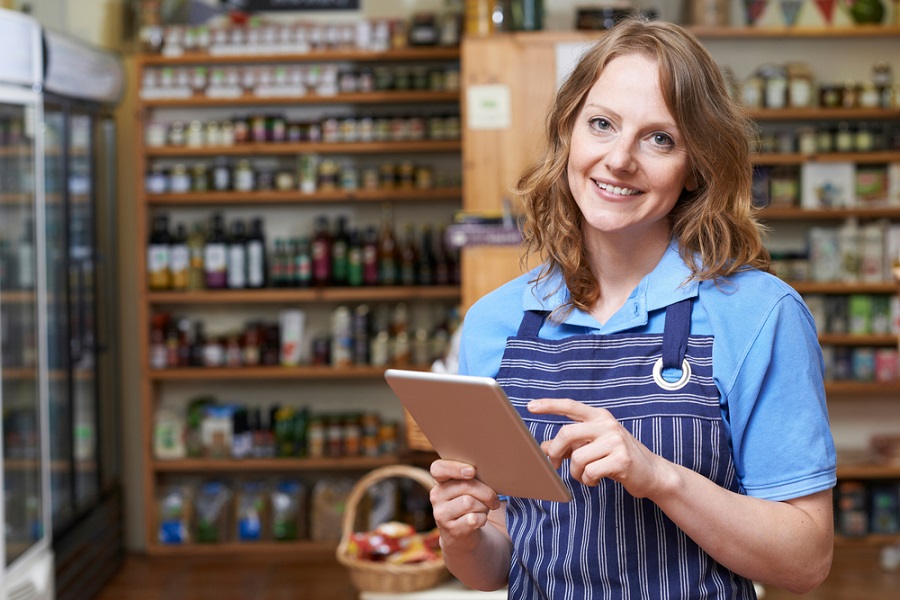Restaurants, supermarkets, and stores are forced to look for new sales formulas to maintain their commercial activity in the coronavirus era. Online sales are positioned as an ally to reverse the losses caused by perimeter confinements, the limit on business hours, and the preferences of a consumer who chooses to receive products and services at their own home.
The measures adopted by the Government and the different autonomous communities have had a negative impact on the commercial activity of many sectors. Businesses that find online sales a lifeline to try to alleviate the economic effects of COVID-19. A crisis that only in the hospitality sector has caused the loss of 8% of its contributors in the last six months.
Thus, various businesses have had to redefine their sales strategy to incorporate new purchasing possibilities through adhesion to home order distribution platforms, digital channels, or by opting for the creation of a website.
For Jordi Pascual, director of e-commerce at Banco Sabadell, we are in a current economic, social, and health crisis and the limitations for traditional commerce are evident. "They make that, of all these aspects, the one that is most relevant, in some cases even urgent, is that of digitally engaging with customers and distance selling, either with home delivery or collection in store," says Pascual.
Businesses that choose to create e-commerce must face an investment that Emprenderalia quantifies between € 40,000 or € 50,000. Without forgetting, the deadlines for carrying out the projects, which are estimated to be around 6 months. An unaffordable period for those companies that need to reinvent their business to maintain their commercial activity. Creating e-commerce, therefore, takes time and can be complex for certain businesses and SMEs.
"At least we need an investment of € 40,000 or € 50,000 for the first six months of life": Emprenderalia
And it is that e-commerce must not only offer a good user experience to facilitate the search for products, it must also be well-positioned in search engines so that it is accessible to customers. Web visibility requires time and effort, which must be added to possible integrations with other platforms to update, for example, the stock and comply with security standards to avoid problems. Karspersky Lab & Ponemon Institute estimates that the consequences of a cyberattack on an SME can cost about € 35,000.
How has COVID-19 affected the online sales of businesses?
The online sales sector has seen its figures grow as restrictive measures were announced to alleviate the coronavirus. Online shopping in supermarkets has grown considerably. According to a report by the consulting firm Nielsen, the online channel has boosted sales by 16.2% during the second week of confinement.
For its part, food delivery has been the escape route for restaurants, which have seen their income decline as lockdown measures and time restrictions were implemented.
As reflected in the results of the 7th edition of the Gastrometer produced by Just Eat, the restaurants that already had home delivery saw their orders increase between 40-50%. Also, restaurants that did not have this service and decided to bet on delivering food at home, had a 200% increase in restaurant registrations concerning the same period of the previous year.
Delivery increased between 40 and 50%
Also, online sales of household products shot up 400% during home confinement, reaching an established growth of 80%.
How can businesses that do not have e-commerce adapt to the new reality?
Business without e-commerce
Restaurants without e-commerce, supermarkets without an online store, or small and medium businesses without a digital presence, who want to start marketing their products in a few weeks and without large investments or maintenance costs, can choose to order through telephone or immediate communication channels such as WhatsApp.
To use WhatsApp for commercial purposes, in the case of small businesses, they have to create a company profile to meet the requests of their customers through the app or the desktop version. For their part, SMEs and large companies must trust a provider certified by WhatsApp to integrate the official WhatsApp Business API into their solution for company communication management.
Businesses with a website but without digital payment platforms
For their part, both companies that have a page and businesses that accept orders through digital communication channels or by telephone but do not have a payment platform find, on external home order platforms, voice payments and payment link generation solutions safe and efficient solutions to start managing your payments.
Unlike external platforms for home ordering, digital payment solutions are not subject to commissions or high costs. Thus, for example, if a customer wants to order her dinner by phone, she can make the payment on the same call. The restaurant will be in charge of diverting the call to a payment IVR that will request the card details to make the payment. Thus complying with the regulations governing credit card payments.
Likewise, a supermarket can offer its customers the possibility of filling the shopping cart through its website or WhatsApp. In both cases, once the order is completed, the customer will indicate whether he prefers to receive a payment link via SMS, WhatsApp, or in the webchat. You just have to click on the link and enter your card details in the payment gateway.
Businesses that want to increase their sales channels
Also, companies that accept card payments through their website or e-commerce can increase the collection channels that they make available to customers. Thus, customers can choose between paying through the website, by phone, SMS, or WhatsApp.
The coronavirus crisis and the consumer habits of customers, who are increasingly opting for home orders, are forcing businesses to reinvent themselves to continue to maintain their commercial activity, be competitive, and offer a value-added service.
Immediate communication channels, such as WhatsApp, telephone, or SMS, allow companies of all sizes to market their products at home in a short time, without adhesion fees or investments inexpensive platforms. Thus, making WhatsApp and the telephone their channels to provide information about their products in real-time, manage orders and make payments, guaranteeing the security of the information and the transaction at all times.





